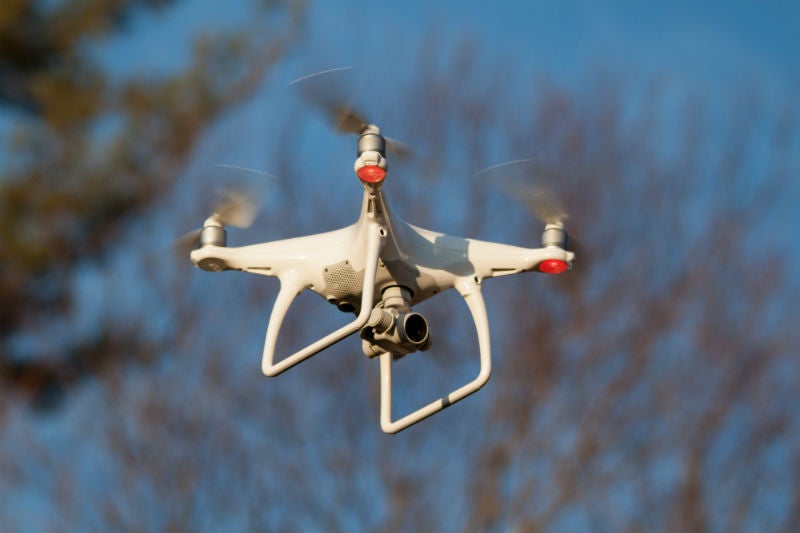
The UK Ministry of Defence (MoD) has launched a competition to seek robust and cost-effective next-generation solutions to tackle the future threats posed by drones.
The £2m competition is run by the Defence and Security Accelerator (DASA), the MoD’s innovation wing, and is the latest stage in Defence Science and Technology Lab’s (Dstl) ongoing research programme into countering unmanned aerial systems (UAS).
Companies in the defence industry are invited to submit proposals to neutralise the risks posed by hostile drones to the defence and security of the UK both at home and abroad.
The MoD aims to develop new defensive capabilities by leveraging autonomous decision-making mechanisms and networked sensing systems that can detect, track, identify and defeat hostile UAS. It is also looking at developing its own swarm of drones.
UK Defence Secretary Gavin Williamson said: “As the security threats from hostile drones are evolving at pace, it’s critical that our armed forces benefit from the very latest technology to stay ahead.
“This competition will draw on the brightest and best of our defence industry to find innovative solutions that will ensure we are protected in the years to come.”
The competition is focused on finding solutions to three key challenges, including next-generation counter-UAS technology, flexible counter-UAS technology, and countering future UAS systems.
The first phase of the competition will involve delivering a proof of concept of the proposals for further development and integration in subsequent phases.
It is expected to take place from July to March. The phase will have a minimum funding of £800,000 to fund multiple contracts.
Dstl principal engineer David Lugton said: “Hostile UAS is a challenging threat in many different ways and requires cutting-edge technology and well-thought-out system approaches to counter it effectively. Through this competition, we are looking to inspire and develop a range of solutions to mitigate the threat posed by UAS now and in the future.
“Among the technologies we’re looking for, we’d be interested in those which can detect and track multiple threats simultaneously, with minimal human oversight, and against a broad spectrum of UAS types.”
Lugton added that DASA was also interested in particular systems that can overcome line-of-sight blockages, as well as comprehensive networks that can link multiple systems together to give a better picture of the drone threat.
Countering threats posed by drones was one of the key talking points at the recent Security and Counter Terror Expo 2019.



